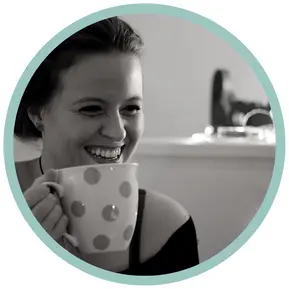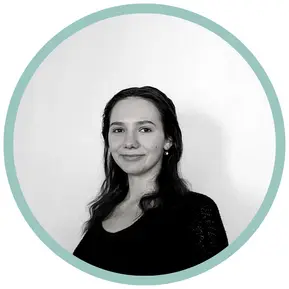Perspectives on Studying European Ethnology as a Minor Subject

From Sophie
European Ethnology broadens your horizons and enriches your general knowledge.
Like probably no other discipline, European Ethnology offers the possibility to explore all aspects of everyday life (both historical and contemporary). One challenge here is that, in contrast to other disciplines in the humanities, we do not approach this from a quantitative perspective, but from a qualitative one. This enables us to not only explain aspects of everyday life, but also to understand them.
European Ethnology changes your own perspectives of day-to-day life or even of everyday occurrences that you don’t normally pay any attention to. Last semester, I had the chance to deal with topics such as Advent wreaths, love & digitalisation, and the Brothers Grimm fairy tales in the field of disciplinary history. This semester, for example, I’m taking a seminar on the history of Hamburg in comics, looking into woodland cemeteries and exploring modern cultural magazines like Landlust. As part of a seminar, I’m also researching selfie culture in Bamberg, which is a new experience for me.
This discipline often gives you the opportunity to look at your own interests from an ethnological perspective and learn the methodologies and foundations of the subject on the basis of topics that interest students. Personally, I always find the European ethnological perspective a challenge but, above all, also an asset for my general knowledge. I’ve developed a new perspective on many areas of life, as well as gaining a broader understanding of cultural phenomena. This means I go through my day-to-day life with more awareness than before my studies. I can only recommend this subject; it’s a lot of fun and will always surprise you in new ways!
*****
Sophie studied a combination of Communication Studies, European Ethnology and Business Administration.

From Jona
European Ethnology challenges established perspectives.
How you view your own everyday life changes enormously through studying European Ethnology because it places topics in their wider contexts. For example, my thoughts in changing rooms when I’m shopping have changed noticeably thanks to my studies. When I’m trying on a pair of jeans, I think about interesting trouser styles worn over the last centuries.
I remember what significance jeans had for the generation of the 1968 protests and the women’s movement and what they now symbolise for me and society. Trousers are no longer an inanimate object, but a culture-laden subject. Things have a history and were not always what they are today. Just like customs and traditions, their shape and their meaning change constantly. Their current meaning is the result of their cultural history.
Your own environment becomes richer, more complex and more fascinating thanks to studying European Ethnology. The only prerequisite is to be inquisitive! Then old photo albums are not just a collection of dusty memories but become sources for you. Even your grandparents’ loft, which smells of mothballs and is covered in cobwebs, becomes a treasure trove for enthusiastic European ethnologists. Suddenly, there’s something to discover everywhere. While European Ethnology also deals with the culture of the past, like trades that have disappeared, it also examines current cultural phenomena such as fast food, smartphone addiction, punk music and yoga festivals, or it looks into the future – for example in the fields of digitalisation, virtual reality, artificial intelligence and robotics.
What do identity and home mean? How has culture changed and how will it still?
European Ethnology gives many answers to these. But it opens up even more questions. In this programme, everyone has to consider their own actions and those of other people. And that is usually a lot of fun!
*****
Jona studied a combination of History, Communication Studies and European Ethnology.

From Theresa
A bottomless pit, or a way for dedicated individuals to learn how to understand culture?
Whether you study the Brothers Grimm, the use of technology or cultural artefacts in the European Ethnology programme, that’s up to you. During your studies, it will quickly become clear why this subject is often rudely described as bottomless or chaotic. At first, there seems to be no topics that European Ethnology doesn’t cover. Yet, our subject does have its boundaries! And it is relevant! And, particularly here at Bamberg, it has competence!
Between its multi-faceted character and the scope of its research, European Ethnology particularly benefits from the unique dedication that ethnologists have for their work. In the constant exchange between the discipline and its students, principles emerge that describe our cultural and social environment. For our students, the disciplinary discourse sparks interest and interest sparks enthusiasm for the subject. Learning how to understand processes and getting to know things that are usually in the background are a core part of this subject. Its proximity to real-life happenings is shown through numerous opportunities for field trips, practical training courses or internships. In addition, there is a unique and familiar group dynamic thanks to the subject’s classification as a ‘small discipline’ at Bamberg Uni.
A minor in European Ethnology can be combined with other subjects very well and has multiple points of intersection. Whether going into greater depth in discussing mediatised culture in Communication Studies or shining a spotlight on the diversity of cultures against the backdrop of European history and social interaction, European Ethnology has its finger on the pulse and offers a unique opportunity to discover yourself and your own environment from a new perspective.
*****
Theresa studied a combination of English and American Studies, European Ethnology and Communication Studies.